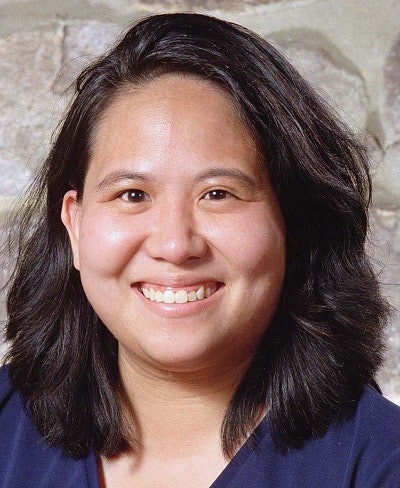The School of Information Sciences at the University of Illinois at Urbana-Champaign welcomed Dr. Eunice Santos as its new dean this fall. Santos is the only female dean currently serving a top ten school for library and information sciences.
“This is an extremely exciting opportunity to further advance our global leadership in the information sciences and more fully realize our mission in the world,” says Dr. Allen Renear, the School of Information Sciences’ former dean. He recently returned to his faculty role. Renear called Santos an “inventive, committed scholar and an exceptionally creative and entrepreneurial academic leader.”
 Dr. Eunice Santos
Dr. Eunice Santos“There is no one better prepared to lead our rapidly growing school and ensure that we engage the challenges that face our society,” Renear adds. The university’s School of Information Sciences is also referred to as the iSchool.
Prior to coming to the University of Illinois, Santos was the Ron Hochsprung Endowed Chair and professor at the Illinois Institute of Technology. She also chaired its computer science department. Santos earned her doctorate in computer science as well as bachelor’s and master’s degrees in math and computer science from the University of California, Berkeley.
An award-winning scholar, Santos’s honors include the National Science Foundation’s Faculty Early Career Development award, the Institute of Electrical and Electronics Engineers’ Computer Society Technical Achievement award and the IEEE Big Data Security Woman of Achievement award.
“I am confident that Professor Santos will strengthen, diversify and amplify our top-ranked iSchool’s excellence and leadership in this century of digital transformation,” says Dr. Andreas Cangellaris, UI’s vice chancellor for academic affairs and provost.
While at the Illinois Institute of Technology, Santos was credited for growing and advancing a number of programs, including artificial intelligence, cybersecurity, data science, and computer-human interaction. She also secured funding for a faculty growth plan, and under her leadership, the department raised $10 million to improve research infrastructure, form student scholarships and fund faculty chairs. Santos also doubled the department’s facilities and worked on K-12 diversity through outreach programs.
Santos’s research focus is on computational social science, using computer science tools to analyze social science research. In a recent project, Santos explored what computational methods reveal about how social networks are structured.
Santos says she was drawn to this area of research because it “can help provide understanding on how and why groups and communities form and how individuals interact.” This is also a research area that can support what the iSchool values, “social impact,” Santos adds.
“The iSchool is inherently interdisciplinary with faculty members whose backgrounds span the gamut of academic disciplines,” Santos says. “My past experiences collaborating on interdisciplinary research with a wide-group of faculty backgrounds, especially in computational social science, and my research work in social impact topics such as health disparities should be particularly valuable.”
Dr. Linda Smith, the former associate dean of the School of Information Sciences, agrees.
Smith calls Santos’s “genuine interest and commitment” to a human-centered, interdisciplinary approach, both in her leadership and in her research, impressive.
Smith also praises Santos’s efforts to bring gender and racial diversity to the STEM fields, including at the K-12 level. Her participation in an outreach program for middle school students who are underrepresented in science, technology, engineering and math is one example. As the iSchool works to diversify its student population and prepare them for a variety of emerging fields, Smith says that Santos will be an asset.
Santos not only “manifests being a woman in a STEM field” but demonstrates a “commitment to promoting women in STEM,” Smith says.
Because information sciences is a relatively new discipline, schools often hire deans from computer science backgrounds, where women are underrepresented in top positions, Smith explains. So, these disparities bleed into information sciences leadership, as well. Santos is a “very accomplished scholar and serious administrator” with a “strong leadership vision for the future,” she says.















